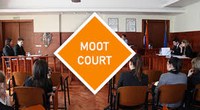Projects and teaching methodologies
The department's projects are part of the University's reference model for educational innovation, based on three areas or priorities: students, teachers and organisation. With the help of the "Centre for the Innovation of Didactics", the goal is therefore to encourage the continuous improvement of the quality of teaching-learning processes. The dedicated organisational unit supports and promotes innovation also from the point of view of the design and coordination of the overall system.

-
Teaching modes at DSG on a.y. 2020-2021
Course units of the DSG programs taken place in the first semester will be organized by one of the models decided by the University.

Online Teaching
Online Teaching is a method of teaching that allows students and teachers to continue their training and learning even if they are "physically" distant. The term 'distance' indicates the lack of physical presence of the subjects involved: teachers and pupils. Their interaction, in this mode of teaching, can take place in real time through the connection in web classrooms and through the distribution of downloadable material online. The online support and its tools play a fundamental role. This mode is therefore aimed at integrating the work done in the classroom and/or not interrupting the training.
LINKS TO APPLICATIONS
-
Zoom (only for online exams)
Click on 'Sign in' to access with the University credentials
LINKS ABOUT INSTRUCTIONS AND TUTORIALS
-
Online tutorials for faculty members
To support faculty in the use of the new online teaching tools, tutorials have been prepared on the following topics: online lectures; online exams; online degrees; management of invitations for guests not from the University of Bologna; registration of meetings on Microsoft Teams.
-
Video of the initiative 'Innovating emergency education'
In order to guarantee new ways of sharing knowledge, some thematic videos are made available by the faculty of the University of Bologna, with the aim of conveying information and strategies, useful to support the delivery of online teaching.

Moot court
Moot court is a co-curricular activity in which the Department of Legal Studies has been promoting the participation of teams composed of its students for several years. There are several national and international moot court competitions on legal topics:
- Willem C. Vis International Commercial Arbitration Moot, on international arbitration;
- Construction Arbitration Moot, on procurement;
- PAX Moot, in cross-border law and private international law;
- Philip C. Jessup International Law Moot Court Competition, on public international law;
- European Law Moot Court Competition (ELMCC), for the European Union;
- Premio Giuseppe Sperduti, in the field of human rights protection.
The various competitions, at national and above all international level, are organised, mainly in English but also in French and Italian, by prestigious university institutions, according to a common scheme that starts from the analysis of a case, often complex and with multiple procedural and substantive implications. The first stage, written, provides for the presentation of the defence documents, either for the appellant or the defendant, or both. This is followed by an oral phase with real court battles through which the winner is determined.
Participation in this type of initiative includes, before the final stage, several months of careful preparation in the form of seminars, carried out under the tutorship of teachers. It leads to the enrichment of the student's legal, rhetorical and linguistic training, as well as providing considerable practical experience and thus an ideal bridge to the professional world.
NEWS ABOUT MOOT COURT

Transferable skills
Acquiring transferable skills provides students with the basic knowledge, abilities and qualities required to translate skills into suitable behaviour for organisational purposes.
Transferable skills - Patents & trademarks
In this specific area the contents of the programme are the basic application of knowledge of trademark and patent law, especially for technical-scientific professionals (chemists, engineers, etc.), in light of European or international legislation.
Teacher
Prof. Alberto Musso
Target
The project is open to all students enrolled in the current year. The lessons can be added by the student to their own curriculum as credits of their own choice by completing the study plan via web.
Transferable skills - Labour and tax consultancy seminars
In this specific lesson the aim is threefold:
- Learn about the types of employment contracts and how they are applied in the world of business.
- Information on opportunities to help young people enter the world of work.
- Learn how to set up one's own business.
In short, it is expected that at the end of the lab students will know the main types of work, know how to draft a professional CV, be able to orient themselves in a job interview, have basic knowledge of the tax and social security systems applicable to business, self-employment and employment, learn about the role and functions of the main labour and tax institutions (Inps, Inail, Ministry of Labour, National Labour Inspectorate, Revenue Agency, State Property Agency, MEF). Classroom lessons will be held with presentations by staff managers and tax consultants, from private and public organisations.
Professor
Prof. Alberto Pizzoferrato
Target
The project is open to all students enrolled in the current year. The lessons can be added by the student to their curriculum as credits of their own choice by completing the study plan via web.